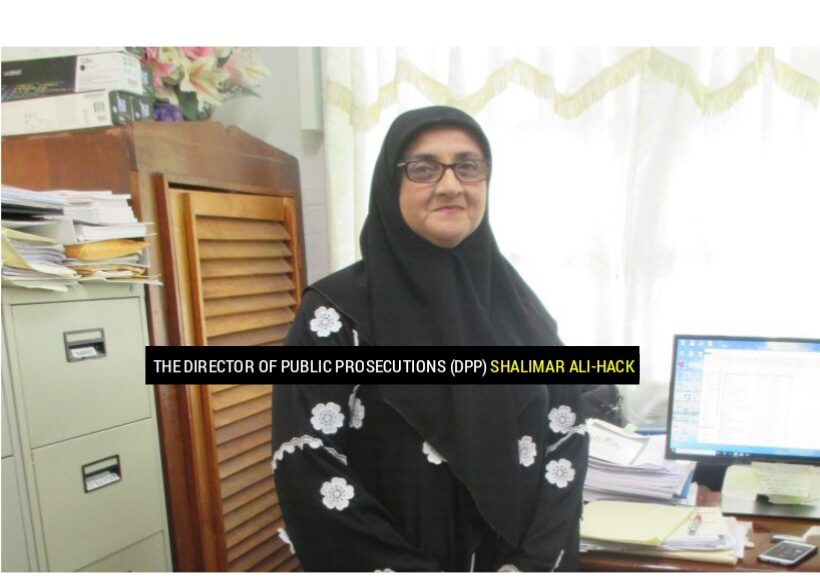The Director of Public Prosecutions (DPP) Shalimar Ali-Hack, SC has been stripped of the power that allowed her to direct a magistrate to commit an accused person to stand trial in the High Court before a judge and jury.
This was done in April 2023, to ensure the constitutional right of an accused person is protected. Her power in this regard was diluted after the Criminal Law (Procedure) Amendment Bill of 2022 was modified after the adjustment to the legislation was successfully passed in the National Assembly.
The cut to the DPP’s power was done following the landmark ruling by the Caribbean Court of Justice (CCJ) in the Marcus Bisram case. The CCJ had ruled in the case where the Director had ordered that Guyanese-American businessman, Bisram be committed to face a trial in the High Court for murder despite a Judicial ruling that there was not enough evidence against him.
Following this ruling, the government signalled its intention to curb the excessive power of the DPP.
The government later amended section 72 of the Criminal Law (Procedure) Act, Cap 10:01. Section 72 empowered the DPP to direct a magistrate to commit an accused person to stand trial, even if the said magistrate, after conducting a preliminary inquiry, discharges the accused person.
The amendment now provides that in every case where a magistrate discharges an accused person under section 69 or 71A (4), the DPP may make a written request to the magistrate to furnish an authenticated copy of the depositions taken at the preliminary inquiry, and to this the magistrate must comply.
After considering the deposition, if the DPP is of the opinion that a prima facie case against the discharged person was established and the discharged person should have been committed for trial, the DPP may make an application to a judge of the High Court for a warrant to arrest and commit an accused person who was discharged by a magistrate under section 69 or 71A (4) of the Principal Act.
Notably, the amendment stipulates that the DPP’s application must be made within three months of receipt from the magistrate, of the authenticated copy of the depositions and any other statements or documents involved in the proceedings.
If the judge believes such an action is warranted based on the evidence placed before the magistrate who discharged the accused and the DPP’s application is granted, the judge may issue an arrest warrant and committal of the discharged person that shall be kept until otherwise discharged or granted bail.
Also, the amendment stipulates that where the Director or the discharged person is aggrieved by a decision of the judge under this section then an appeal of that decision shall be laid before the Court of Appeal.
Moreover, Ali-Hack plays a vital role in the administration of justice in criminal causes or matters. She is the sole authority vested with the power and responsibility to exercise control over the prosecution of all criminal matters except the institution of a court‐martial.
Under the laws of Guyana, the DPP can institute and undertake criminal proceedings against any person before any court, other than a court-martial, in respect of any offence against the law of Guyana. She can also take over and continue any such criminal proceedings that may have been instituted by any other person or authority and the third to discontinue at any stage before judgment is delivered any such criminal proceedings instituted or undertaken by the Director or any other person or authority.
Notably, in 2008, Shalimar Ali-Hack was confirmed as the substantive DPP by the Judicial Service Commission (JSC). In April of that same year the Commission met and confirmed Ali-Hack as the DPP.
The DPP was admitted to the local bar in October 1990 and in June 2019, she became the first Muslim female Attorney to be appointed a Senior Counsel (SC) in Guyana.









